Learning by flip-flopping
08 May 2017I recently came across Artir’s Pyramid of Economic Insight and Virtue. It’s not actually a pyramid, but is instead a riff on the Expanding Brain meme. Check it out:
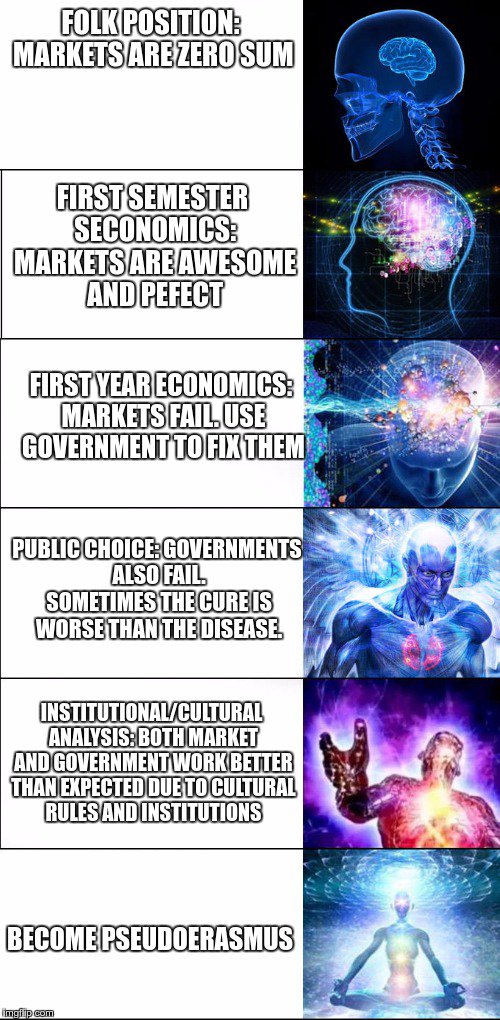
What’s interesting about Artir’s Pyramid is that at every step, the position flip-flops from the previous step. This isn’t just a dialogue between two sides. It is a description of the belief sequence that people traverse as they learn more about an issue. We might call this learning by flip-flopping.
This got me thinking: In what other issues do people go through a sequence of flip-flops as they learn more about it? In this blog post, I’d like to suggest a few.
Let me stress that in presenting these I don’t necessarily think that the “highest” levels in these examples are correct, nor do I think I have a strong understanding on many of these issues. It’s just something that’s fun to think about.
Increasing the minimum wage
This is arguably a special case of Artir’s Pyramid and is probably the canonical example of learning by flip-flopping.
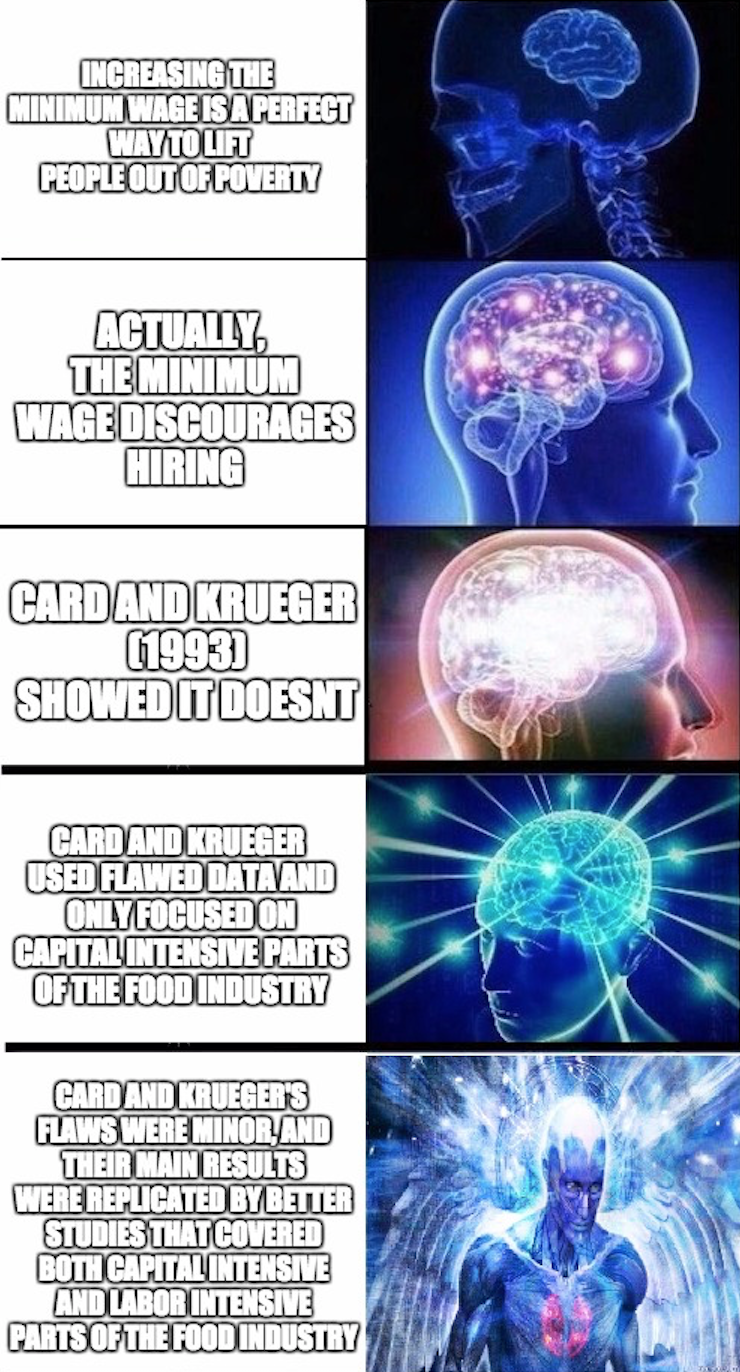
When it comes to the minimum wage debate and other debates, I often sometimes see a Stage 2 person talking to someone they believe is at Stage 1 but who is in fact at Stage 3.
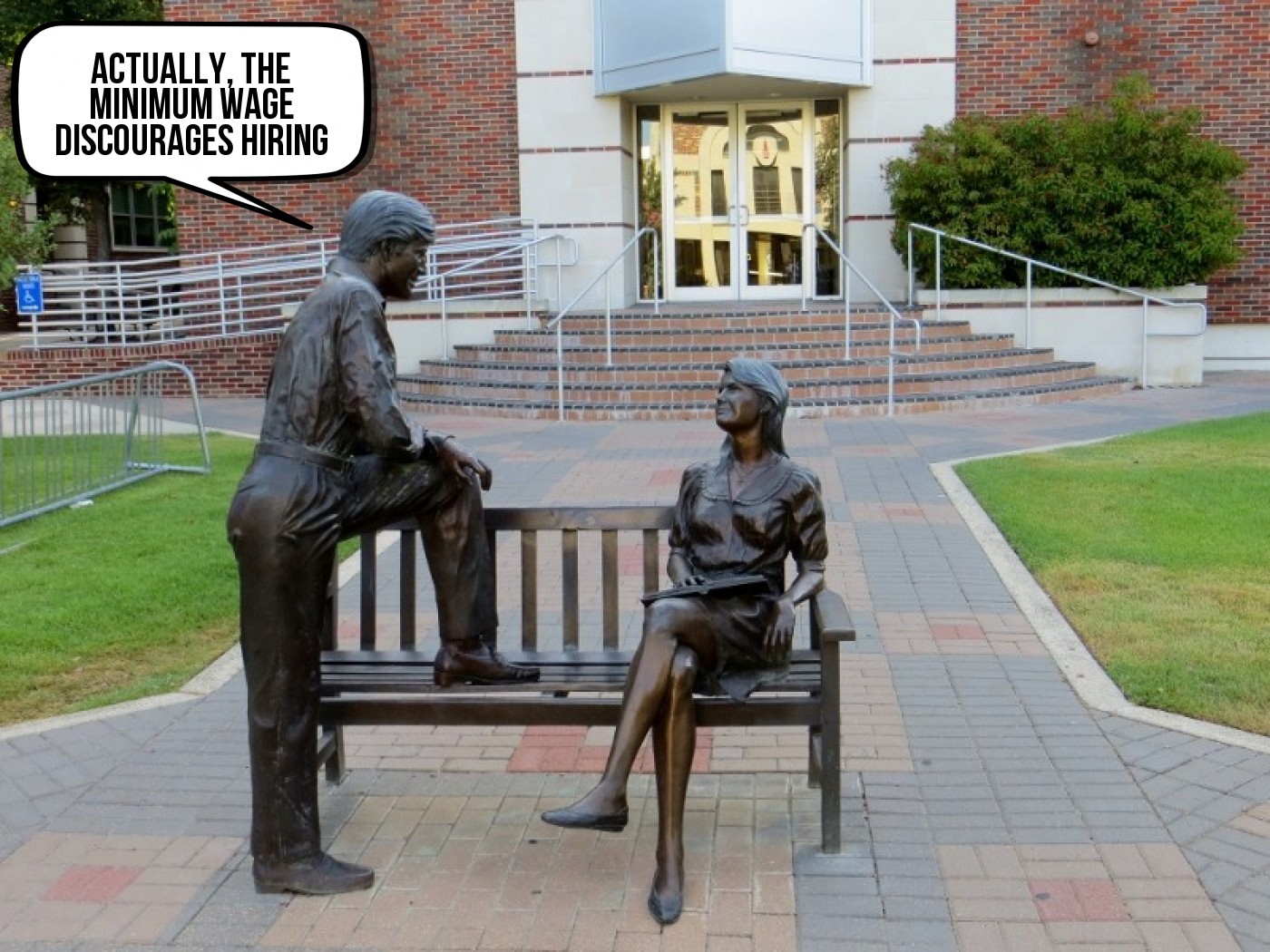
Further reading on the minimum wage: Card and Krueger, criticism of Card and Krueger’s data, another case against Card and Krueger, two better studies.
How to deal with a recession
Recession flip-flopping is less related to Artir’s Pyramid, but is still quite common. I may be bungling some of the later stages here, as my macro knowledge is mostly cobbled together from parody rap videos, so I welcome any suggestions for additional further reading.
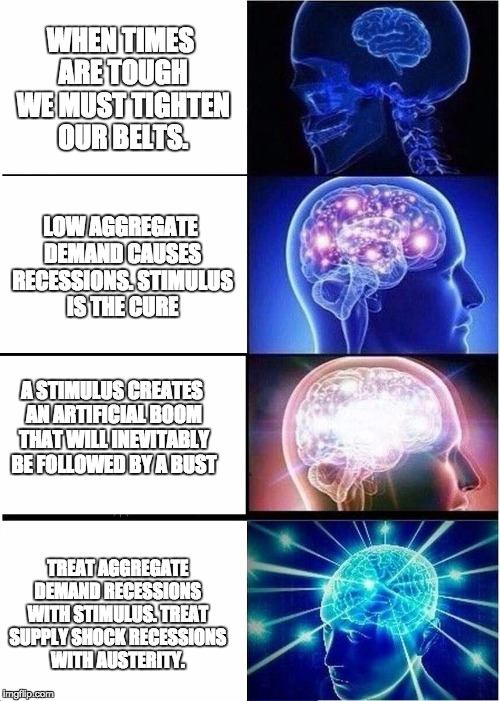
Further reading on recessions: The government is not a household, Keynesian economics, boom and bust cycles, and a wonderful book by Tim Harford.
Twitter’s 140 character limit
I’d like to keep this blog post as value-judgment free as possible, but I’ll make a special exception for this one. The 140 character limit is no longer a good idea, and Stage 3 is the correct stage.
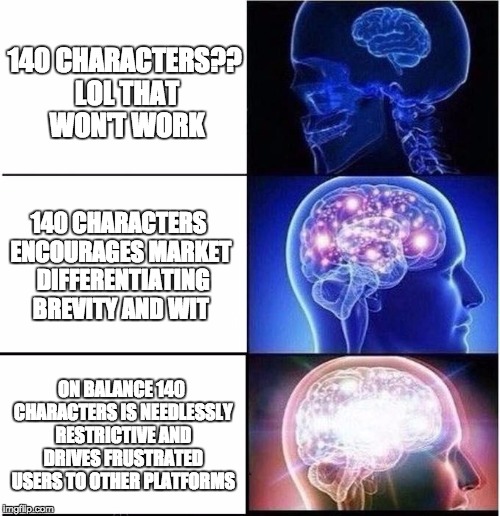
The meaning of life
David Chapman writes about how STEM-trained people should think about meaning. Extending Robert Kegen’s theory of human development, he believes that most STEM-trained people can find meaning in ideological rationalism (Stage 4) but, upon finding that rationality does not provide any meaning, they become in danger of falling into the Nihilism trap (Stage 4.5). Chapman claims that there is a Stage 5, sometimes called meta-rationality or fluidity, in which meaning can once again be found. You can read more about it on his blog.
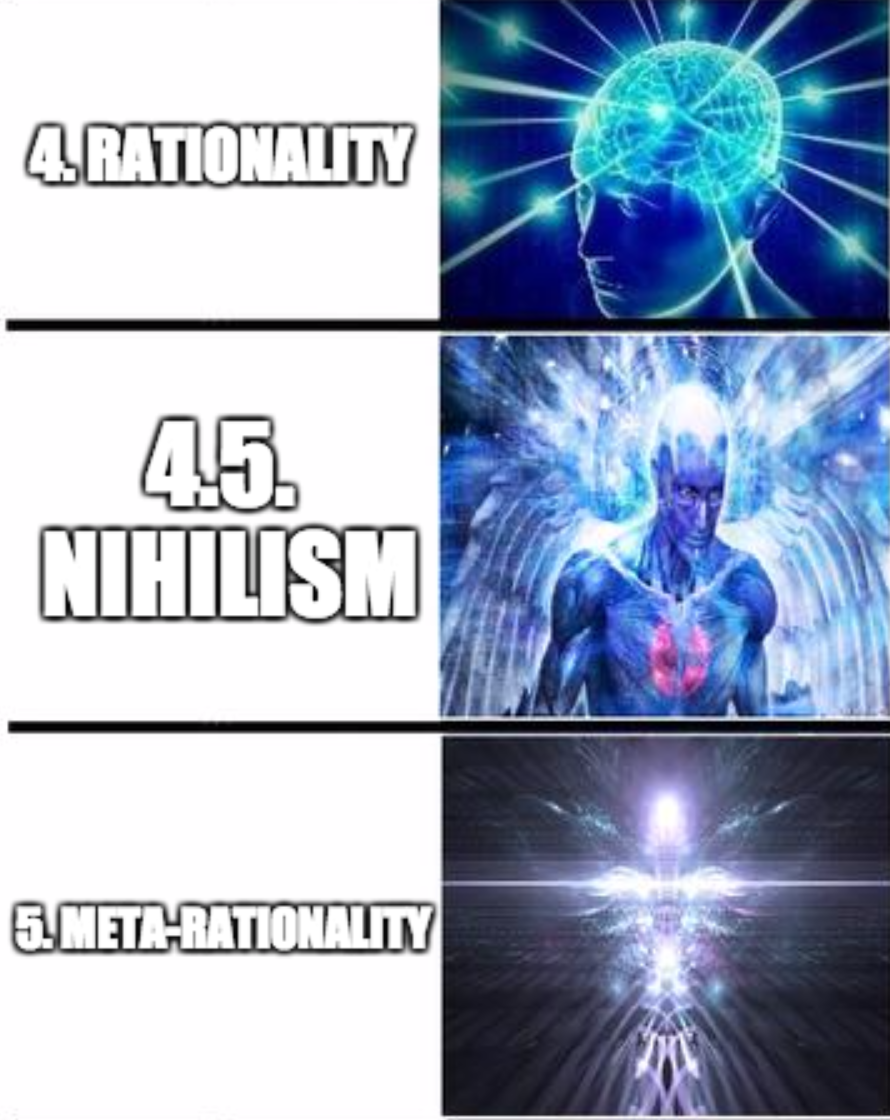
What other examples of learning by flip-flopping are out there?
UPDATE: John McDonnell points me towards Hegelian Dialectic.
